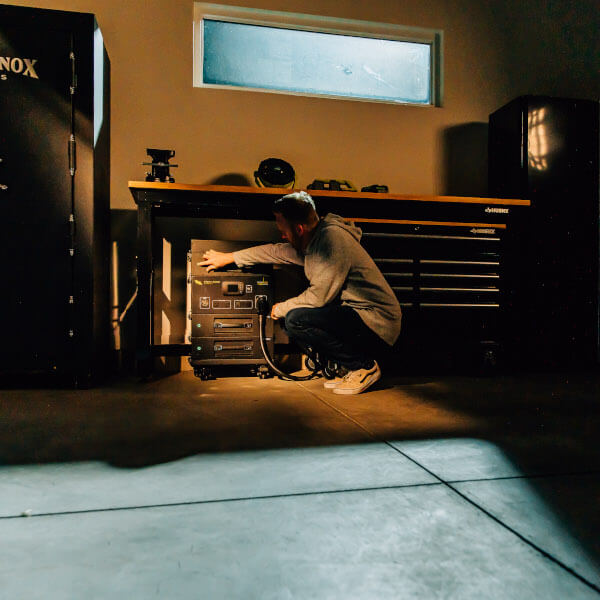The open road calls to many adventurers, but when it comes to off-grid living, there’s a big decision to make: Van Life or RV Life? Both offer the freedom to travel, explore, and embrace nature, but each comes with its own set of advantages and challenges. Whether you’re looking for an off-grid weekend getaway or planning to be a full-time traveler, choosing the right setup can make all the difference. In this guide, we’ll compare Van Life and RV Life in terms of mobility, comfort, power solutions, cost, and off-grid capabilities to help you determine which is best for your lifestyle.
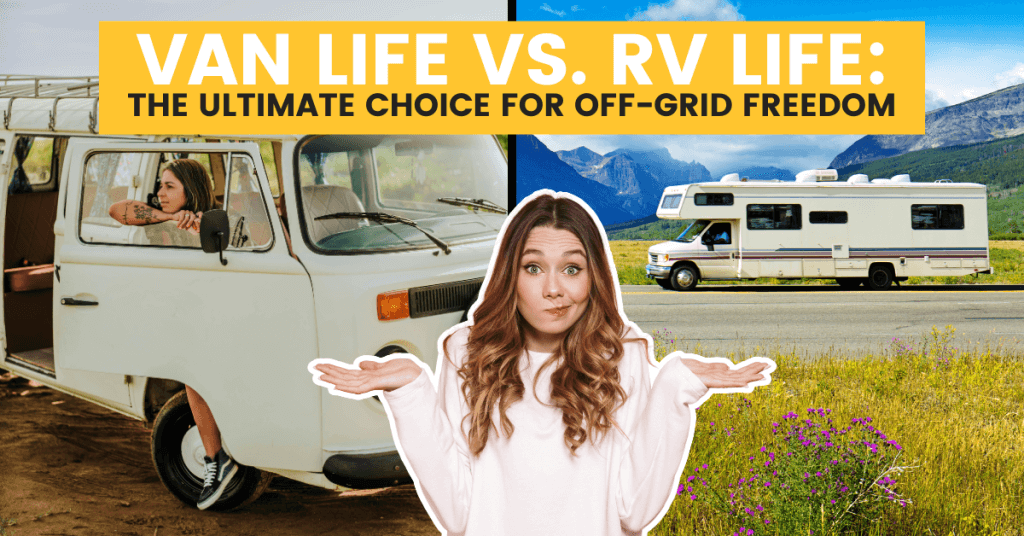
One of the biggest differences between Van Life and RV Life is mobility. Vans are smaller, more agile, and can navigate tight spaces that larger RVs simply can’t. Whether it’s a winding mountain road, a city street, or a remote campsite, a van can get you there with ease.
On the other hand, RVs offer more living space but can be cumbersome to drive, especially in urban areas or off-road conditions. While many RV families prefer the comfort and spaciousness, they often need to plan their routes carefully, avoiding narrow roads and low bridges. If spontaneity and easy maneuverability are priorities, Van Life might be the better choice.
Winner Mobility and Flexibility: Van Life ✔️

When it comes to comfort, RVs have a clear advantage. A full-time RV setup typically includes a kitchen, bathroom, sleeping quarters, and ample storage. This makes RV Life ideal for families, couples, or anyone who wants the conveniences of home while exploring the great outdoors.
One of the biggest perks of RV Life is the presence of a full bathroom, complete with a toilet, shower, and sink (some even have a full-sized bathtub!). Many RV models even feature separate freshwater and waste tanks, making it easy to manage water use and sanitation while off-grid. This level of convenience is especially important for families or full-time travelers who don’t want to rely on campground facilities.
Vans, while efficient, require creative use of space. Many van dwellers opt for compact kitchens, fold-out beds, and minimalist storage solutions. Bathroom solutions in vans can vary widely. Some travelers install small composting toilets or portable cassette toilets, while others rely on public restrooms or outdoor solutions like pop-up shower tents. Showers can be an even bigger challenge—some van lifers install small indoor showers, but most rely on gym memberships, campsite facilities, or DIY outdoor shower setups with solar-heated water bags.
If you’re comfortable with a more minimalist lifestyle and don’t mind adapting to different restroom solutions, Van Life can be an exciting and rewarding choice. However, if you need a full bathroom, extra storage, or additional sleeping space, an RV may be the better option.
Winner Comfort and Living Space: RV Life ✔️
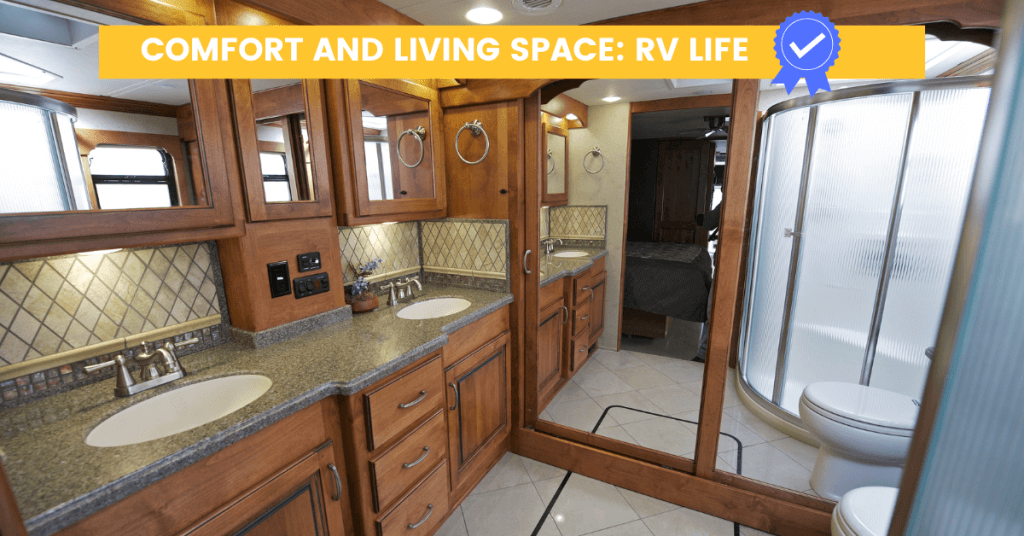
When considering Van Life vs. RV Life with children, the space and amenities available become an even more significant factor. Families with kids need to think about comfort, convenience, and practicality, as children often require more storage, dedicated sleeping areas, and space to move around.
RV Life: RVs generally offer more room for families to spread out. Full-time RVs are designed with families in mind and often come with multiple sleeping areas, including bunk beds or convertible seating. The larger living space also allows for a more organized environment, which can be especially important when traveling with children. In addition to bedrooms, RVs often have dining areas, living spaces, and fully functional kitchens and bathrooms—amenities that make traveling long-term with kids much more comfortable. The presence of a full bathroom is also a major advantage, eliminating the need to rely on public restrooms or outdoor facilities.
Van Life: For families traveling with children, van life can be a bit more challenging due to the compact size. While a van is large enough for a small family, it requires more creative use of space. Most van setups are designed for couples or solo travelers, and accommodating children means adapting the interior to suit their needs. Parents often get creative by installing fold-out beds, storage under seats, or even a small kitchenette. While some families make it work and find the experience rewarding, it may not be ideal for those who want the full comfort of home or need additional storage for kids’ toys, clothes, or supplies.
When choosing between Van Life and RV Life, the needs of your children and the amount of space required will be a big factor. If your children are young and you don’t mind a more minimal setup, Van Life can still be an adventure. However, for larger families or those who need dedicated spaces for children, RV Life may be the better choice for long-term travels.
Winner Family Size: RV Life ✔️
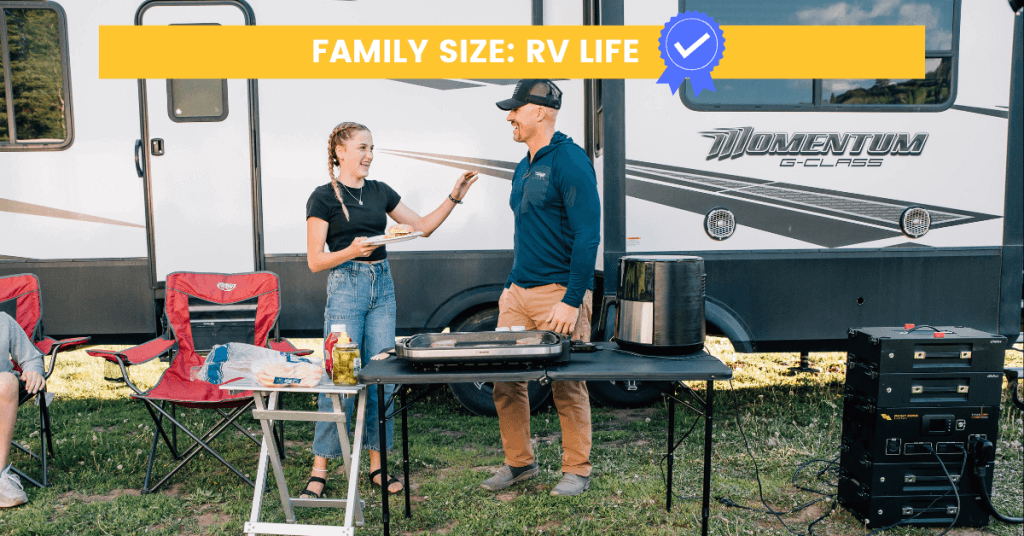
Choosing between Van Life and RV Life isn’t just about lifestyle—it’s also about budget. The cost of your off-grid adventure can vary significantly depending on the vehicle you choose, the upgrades you make, and the expenses you’ll encounter along the way. From the initial purchase price to fuel efficiency, maintenance, and campground fees, understanding the financial side of Van Life vs. RV Life will help you make a more informed decision. Let’s break down the key costs associated with both options.
Winner Cost: Van Life ✔️
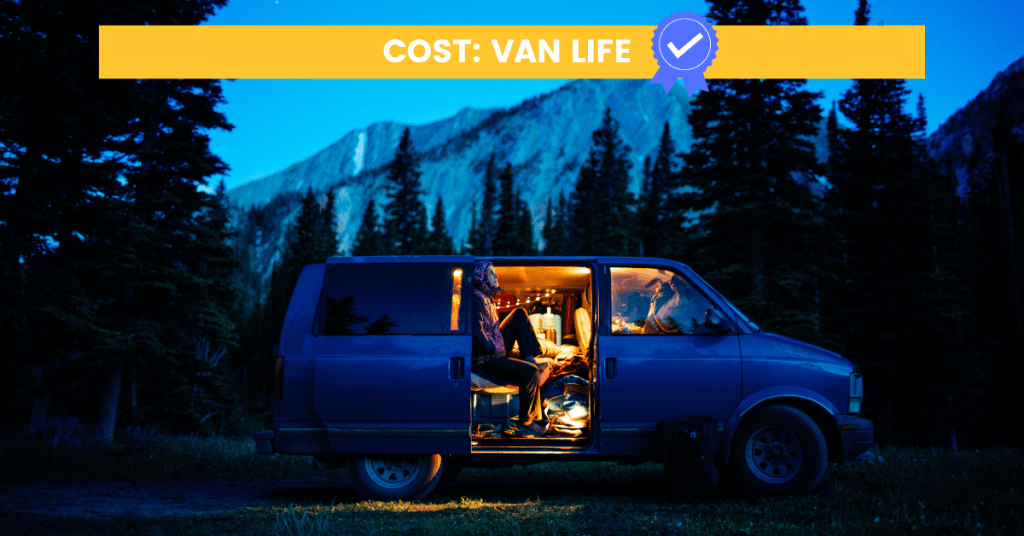
Reliable power is essential for off-grid adventures, and both Van Life and RV Life require dependable energy sources. RV Solar Power and Van Solar Power are popular solutions that allow travelers to stay off-grid for extended periods. The question is: which option can maintain a reliable power source for extended periods on the road?
| Feature | Van Life | RV Life |
|---|---|---|
| Power Needs | Lower due to smaller appliances | Higher due to larger appliances |
| Solar Panel Capacity | Limited due to roof space | More panels can be installed |
| Energy Storage | Typically smaller battery setups | Larger battery banks for extended use |
| Air Conditioning | Limited or portable options | Full AC units available |
| Best For | Minimalist travelers | Those needing more energy for extended stays |
Both setups can effectively use solar power, but RVs generally offer more room for larger systems, making them a better option for those who need higher energy output, while vans benefit from lower power consumption overall.
Winner Off-Grid Power: TIED
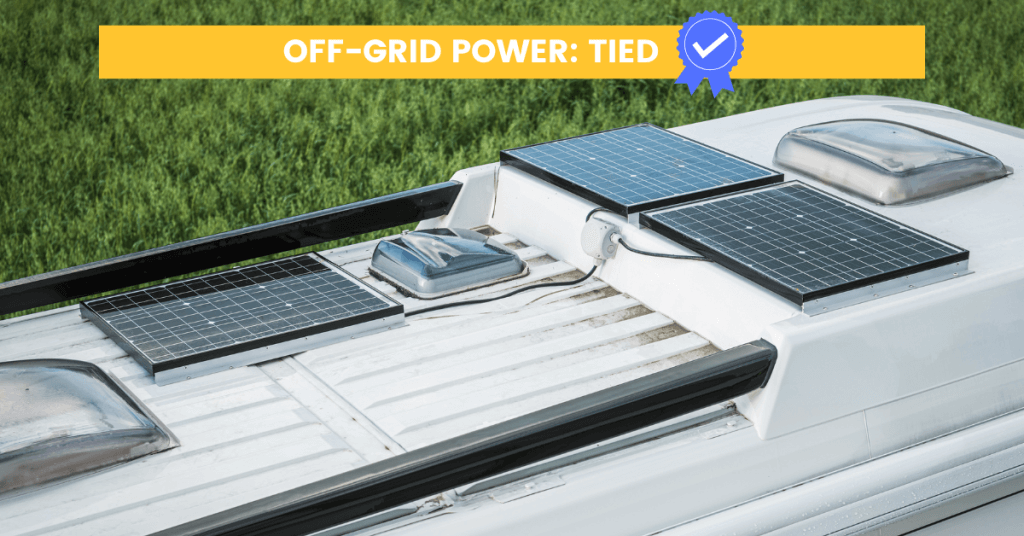
Ultimately, the choice between Van Life and RV Life comes down to your personal priorities. If you prefer flexibility, lower costs, and a minimalist lifestyle, Van Life might be your best bet. If comfort, space, and built-in amenities are essential, then RV Life is likely the better choice.
Van Life is great for solo travelers or couples who want an agile and fuel-efficient setup, while RV Life is ideal for families or those who enjoy the conveniences of home on the road. Each option has its pros and cons, but both offer the freedom to explore and live life on your own terms.
No matter your choice, having a reliable power solution is key to a successful off-grid adventure. At Point Zero Energy, we offer top-tier RV Solar Power and Van Solar Power solutions to keep you powered no matter where the road takes you. Explore our solar power solutions today and take the first step toward energy independence on the road!

